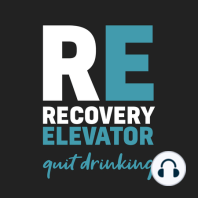38 min listen
RE 202: 12 Reasons to Stay Sober in 2019
ratings:
Length:
43 minutes
Released:
Dec 31, 2018
Format:
Podcast episode
Description
Warren, with 48 hours since his last drink, shares his story… 12 reasons why sober is better: 1 - Look your best. 2 - Look and feel properly rested. 3 - Alcohol fixes things you didn’t notice were broken. 4 - Make the most of your time. 5 - Build better relationships. The opposite of addiction is connection. 6 - More confidence. You can do anything you put your mind to. 7 - Less fear! 8 - Save your money. 9 - Be more present. 10 - Avoid unnecessary disasters. 11 - Create the future you want. 12 - Improved memory SHOW NOTES [8:20] Paul Introduces Warren. Warren is 40 years old, from Martinsville, Virginia, and has been sober for 48 hours. He’s married with two children. He is the executive director of a domestic violence outreach program. He also owns a sound company. He enjoys fishing and camping, and the outdoors. He thinks you shouldn’t always believe what you think. He’s struggled with worrying about what other people think. [12:09] Give us a bit of background about you drinking. He started drinking relatively young. His parents both drank, and were very social. They were involved in politics. He and his cousin found some champagne and they drank until they blacked out. He always felt different from everybody else. When he put substances in his body, it made him feel right. So he would drink/use every chance he got. Once he had a son he began to drink heavily. He attempted to quit drinking. He was in a car accident. When he got out of the hospital, he began to drink again and also use other drugs. His gf/wife was fed up. He tried to quit cocaine, and it just made him drink more. One thanksgiving he woke up in his yard covered with blood (it was from a deer) and it freaked him out. He went into an outpatient program. They recommended AA. He got into it. He stopped going to meetings and started smoking pot. His wife left him and he tried to commit suicide. He went into another program. He decided to get back into AA. He got into another relationship with someone in AA, and it ended badly which made him stop going. He was in debt. After two hours of sobriety, he decided that he had it under control. He relapsed, and when he did it was as if he had never stopped. He felt like when he controlled his drinking, he didn’t like it, and when he liked it he couldn’t control it. [23:50] What’s your plan for getting past it? To try and stay connected with people. He might go back to school. He wants to help people somehow. He studied social work, which paid but was a heavy responsibility. He recognizes that if he can’t find balance he is at risk of losing his job. He’s thought about getting back into AA again. He is worried about the stigma. He’s worried about anonymity. [25:57] What are some lessons you have learned about yourself so far in this journey? He now believes that there is an all powerful god that cares about him. When he got to chapter 4 in the big book, he realized that his idea of a higher power wasn’t helpful. He associated prayer with drinking. He needed to see that prayer can exist without drinking. [28:59] When you get cravings, what do you do? Right now he is trying to binge listen to the podcast. Helping other people stay sober helps him stay sober as well. There is no one correct answer. [30:47] What would you like to talk about right now? How blessed he’s been since he started recovery. He’s in a new world where he can help other people and even though he doesn’t know the plan for his life, he’s okay as long as he stays present and awake. He has learned that the problems arise when he thinks too much, or when he focuses on himself. As long as he is useful to other people, it’s easier. [33:47] When are you going to get your help and how? He’s been researching counselors in the area. He agrees that he needs to focus on helping himself help himself. He wants to relieve the pressure that he puts on himself. [36:22] Rapid Fire Rou
Released:
Dec 31, 2018
Format:
Podcast episode
Titles in the series (100)
020: I didn't have to drink over that |Using alcohol to cope with life struggles: Dez, with 18 months of sobriety shares her experience by Recovery Elevator ?
